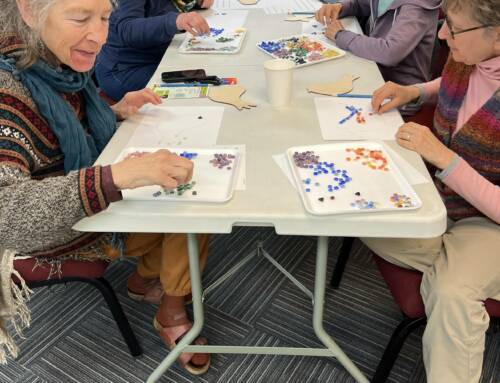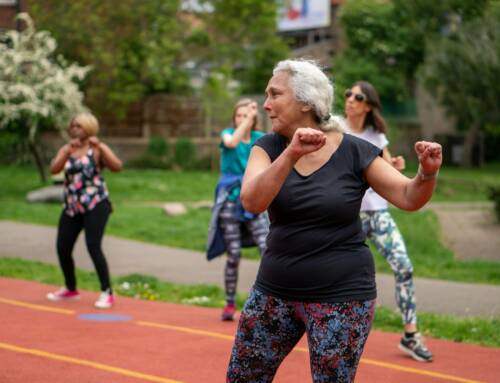The Idaho Commission for Libraries (ICfL) is once again offering public libraries a unique opportunity to bolster local digital inclusion, equity, and literacy efforts. Through the Connecting Communities Digital Inclusion Program, libraries can apply to receive Chromebooks, accessories, and training resources to empower community members with new tools and skills.
During a pilot of the program in fall 2022, the ICfL distributed 135 Chromebooks to 10 libraries throughout the state. Those libraries then utilized the devices at their locations or gave them to community members to keep after those individuals completed basic technology and cybersecurity training.
Due to the success of that initial run, the ICfL has upped the number of available Chromebooks to 175 for this second round, which opens this week.
“I was really pleased with the response to this pilot opportunity from the Idaho library community,” said State Librarian Stephanie Bailey-White. “Getting quality devices plus training and support to Idahoans who may face additional barriers connecting to digital resources is a high priority. This was a good way to test some assumptions and strengthen partnerships.”
Libraries that participate in the program are required to work with at least one community partner to identify and respond to local digital access needs. Additionally, the ICfL encourages libraries to focus on targeted outreach to community members who will most benefit from increased access to digital resources – specifically the eight covered populations identified by the Infrastructure Investment and Jobs Act of 2021.
For pilot participant East Bonner County Library District, that involved forging a new partnership with the Veterans of Foreign Wars (VFW) post in Sandpoint, which is just down the street from the library district’s main branch. Librarian Vanessa Velez initially reached out through Facebook, and the collaboration took off from there. The VFW post commander was very supportive of the Connecting Communities program, identifying 20 local veterans to participate.
“I think the appeal for him was obviously the connectivity aspect … but also the fact that so many of the veteran benefits forms are online,” Velez said. Having access to a personal Chromebook makes it easier for individuals to connect with those resources.
The library led training sessions focused on utilizing Chromebooks, leveraging Google account features, and staying safe online. Each veteran received a device and accompanying accessories after completing the course.
The program highlighted an ongoing community need, prompting the VFW post to purchase additional Chromebooks to have on hand, Velez said. She counts this among the biggest successes of the program.
The Victory Branch of the Ada Community Library saw similar enthusiasm from its community partner, the Idaho Alliance for Ukrainian Refugees and Immigrants, which operates the Nampa-based Ukrainian Welcome Center. The library received 10 Chromebooks through the pilot Connecting Communities program, and the alliance provided additional devices, extending the program reach to 30 individuals.
According to Victory Branch Lead Librarian Derek Ramos, staff at the welcome center were instrumental in recruiting program participants. They encouraged individuals to sign up while they were at the center to connect with other resources. Library staff then conducted training at the center, dividing program participants into three groups, which each completed a series of three sessions.
Though Ramos – who has been with the library for a decade – has plenty of experience leading tech classes, he learned about new tools through this community partnership. Among them: a website to help participants practice typing on a keyboard with English characters and another that allowed them to access virtual keyboards with characters in multiple languages. Library staff were also able to change the display language on the Chromebooks to Ukrainian or Russian. They worked with a translator at every training session, another first for Ramos.
Ramos said he appreciated learning about participants’ individual needs and collaborating with the translators to assist – whether it was helping with online job applications or connecting individuals with library books.
“I felt like we were really meeting a need,” he said.
Oneida County Library District Director Kathy Kent had a similar takeaway.
“This has been one of the most rewarding grants I’ve done,” she said. “This one opens doors. And it was fun to watch those doors open.”
The library collaborated with its local American Legion Post and the Malad Senior Citizen Center to reach program participants. Through individualized training sessions, Kent has given away about a dozen Chromebooks and watched seniors grow empowered to pursue hobbies such as researching family history, documenting personal stories, and organizing photos on their new devices.
Among the resources she featured, “I introduced them to the world of YouTube videos,” Kent said. “And they could go there and search and find things to help them in whatever area they wanted.”
With Chromebooks new to her as well, Kent learned alongside program participants. That included exploring the many accessibility features available on the device, which were especially helpful for a participant with arthritis. She was able to utilize dictation features on the Chromebook instead of the mouse and keyboard.
“You know how excited she was when she found out she could talk to her Chromebook?” Kent said.
Applications are open for the second round of the Connecting Communities program. More information is available on the ICfL website and through a recorded webinar.
The Connecting Communities program is just one component of the ICfL’s work to support digital inclusion and assist Idahoans in accessing the information and technology vital for life in the 21st century. The ICfL is the lead agency developing a collaborative Digital Access for All Idahoans Plan to guide the state’s efforts in the coming years. A draft of the plan will be available for public review later this summer.
Considering a Connecting Communities program at your library? Below are a few tips from pilot participants.



